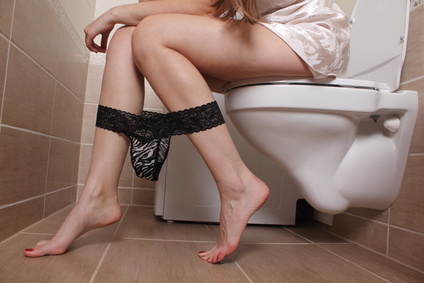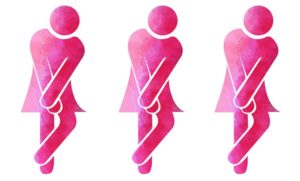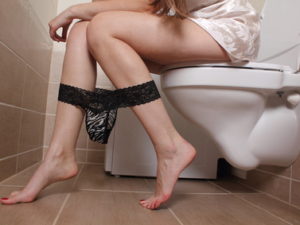
Urinary incontinence is simply the loss of bladder control and it’s a far more common condition than you may realize. In fact, 1 out of every 3 women is quietly coping with this potentially embarrassing problem. Unfortunately, many don’t realize that effective treatment options are helping women regain their comfort and confidence.
Types of female urinary incontinence
Stress Urinary Incontinence
Is caused by weakened or damaged pelvic floor muscles. If you experience unexpected accidents or loss of bladder control when you put stress on your bladder, especially when coughing, sneezing, lifting something heavy, or laughing at a joke—you may suffer from this condition.
Urge Incontinence (overactive bladder)
Is the result of overactive muscles that contract frequently around the bladder. If you feel a sudden, overwhelming urge to use the restroom, even if you just went, and are unable to hold it long enough to get there, urge incontinence may be the reason.
Mixed Incontinence
If both of these situations are familiar to you, you may have mixed incontinence, a combination of stress and urge incontinence.
Other, less common types of urinary incontinence include, overflow incontinence and transient incontinence.
The anatomical explanation for stress urinary incontinence
The muscles and ligaments of the pelvic area support the bladder and urethra in their normal positions. They also provide proper muscle control, alternately constricting the urethra to store urine or constricting the bladder to remove urine from the body.
When the pelvic floor muscles and ring of muscles that surround the urethra (urinary sphincter) have been weakened or damaged by pregnancy, childbirth, menopause, or other causes, the urethra may relax from its normal position and be unable to close completely. So, if a woman coughs, sneezes, or laughs, the sudden pressure she places on her bladder may be too much for her weakened muscles to handle, and she may experience an embarrassing momentary loss of bladder control known as stress urinary incontinence.

The cause of urge urinary incontinence
While the end result may be the same, urge urinary incontinence results from a very different set of circumstances. When nerve passages from the bladder to the brain are impaired by an infection or a neurological injury, disease, or disorder, the brain may receive bad information—and indicate that the bladder should be emptied, even if it’s not full. The brain then directs the muscles surrounding the bladder to contract, sometimes so suddenly that there isn’t enough time to get to a restroom.
In a quality of life study, more than 40% of women shared that incontinence interfered with their work and daily activities. Like many other women, what they may not realize is that they don’t have to manage their condition with frequent visits to the restroom and uncomfortable pads and liners. Medical advances are giving many women a new lease on life.
FAQs
Can alcohol cause urinary incontinence?
Alcohol as caffeine and nicotine are irritant products to the bladder and cause voiding frequency and urgency. They do not cause urinary incontinence unless you have other reasons for incontinence.
Can seizures cause urinary incontinence?
Incontinence is one of the symptoms that appear during seizures but does not necessarily cause siez ures.
How to deal with urinary incontinence?
There are 2 main reasons for urinary incontinence: stress incontinence and urge incontinence. The cause for each is different and so is the treatment. In both pelvic floors, muscle training can help, but in more significant incontinence for stress incontinence, you might need surgery, where for urge incontinence you will receive medical treatment.
What does urinary incontinence mean?
Urinary incontinence is simply the loss of bladder control and it’s a far more common condition than you may realize.
Can lupus cause urinary incontinence?
People living with autoimmune illness particularly those with muscle, nerve and connective tissue involvement (e.g. scleroderma, lupus, myositis, Sjogren’s, rheumatoid arthritis and multiple sclerosis) may also have a higher prevalence of urinary and faecal incontinence.

